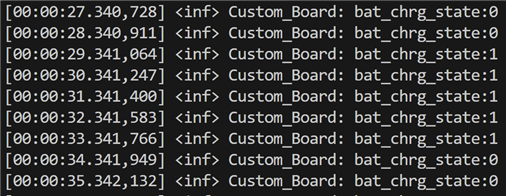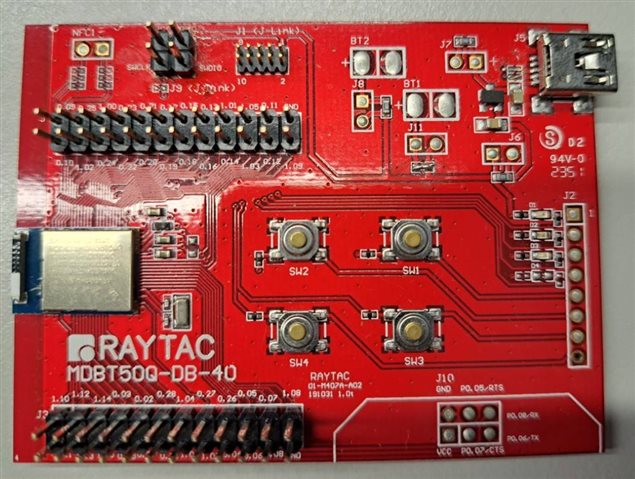I use SDK v.2.6.1. To avoid other possible factors affecting the results, I only keep the simplest function in the code which is reading the potential of gpio every second and using log to display it on RTT. I have two questions and would like to ask. Thank you.
1. When setting p0.21 of gpio as input, the program will have an assertion error(as the follow fig). I have canceled qspi and i2c0 in the file .overlay.

At first I thought it was a bug in my program, so I modify the sample code zephyr/samples/basic/button and run it. But I soon discovered that this was not a problem with the code, because in the same code, when I set p0.27 as input rather than p0.21, the code could run normally(as the follow fig). I didn’t understand why! I knew that the comment CONFIG_ASSERT=y could Let the program run successfully, but this is not the result I want. How to make p0.21 an input pin?

2. In prj.conf, some configs will have missing dependencies. Will missing dependencies cause config settings fail?
(e.g. CONFIG_UART_CONSOLE was assigned the value y, but got the value n. Missing dependencies: SERIAL && SERIAL_HAS_DRIVER). If the setting fails, how to modify it to make the setting successful?

My prj.conf is as follows
CONFIG_GPIO=y CONFIG_CONSOLE=y CONFIG_UART_CONSOLE=y CONFIG_ASSERT=y CONFIG_LOG=y
My .overlay is as follows
/ {
zephyr,user {
chrg_state-gpios = <&gpio0 21 (GPIO_PULL_DOWN | GPIO_ACTIVE_HIGH)>;
};
};
/delete-node/ &i2c0;
&qspi_default {
group1 {
psels = <NRF_PSEL(QSPI_SCK, 0, 19)>,
<NRF_PSEL(QSPI_IO0, 0, 20)>,
<NRF_PSEL(QSPI_IO2, 0, 22)>,
<NRF_PSEL(QSPI_IO3, 0, 23)>,
<NRF_PSEL(QSPI_CSN, 0, 17)>;
};
};
&qspi_sleep {
group1 {
psels = <NRF_PSEL(QSPI_SCK, 0, 19)>,
<NRF_PSEL(QSPI_IO0, 0, 20)>,
<NRF_PSEL(QSPI_IO2, 0, 22)>,
<NRF_PSEL(QSPI_IO3, 0, 23)>;
};
};
My main program is as follows
#include <zephyr/kernel.h>
#include <zephyr/device.h>
#include <zephyr/drivers/gpio.h>
#include <zephyr/logging/log.h>
LOG_MODULE_REGISTER(Custom_Board,LOG_LEVEL_DBG);
static int ret, bat_chrg_state;
#define SLEEP_TIME_MS 1000
#define zephyr_user_NODE DT_PATH(zephyr_user)
static const struct gpio_dt_spec chrg_state = GPIO_DT_SPEC_GET(zephyr_user_NODE, chrg_state_gpios); // chrg_state節點
int main(void)
{
if (!gpio_is_ready_dt(&chrg_state)) {
LOG_ERR("chrg_state is not ready");
return 0;
}
ret = gpio_pin_configure_dt(&chrg_state, GPIO_INPUT);
if (ret != 0) {
LOG_ERR("Error %d: failed to configure %s pin %d\n",
ret, chrg_state.port->name, chrg_state.pin);
return 0;
}
for(;;){
bat_chrg_state = gpio_pin_get_dt(&chrg_state);
LOG_INF("bat_chrg_state:%d",bat_chrg_state);
k_msleep(SLEEP_TIME_MS);
}
}




